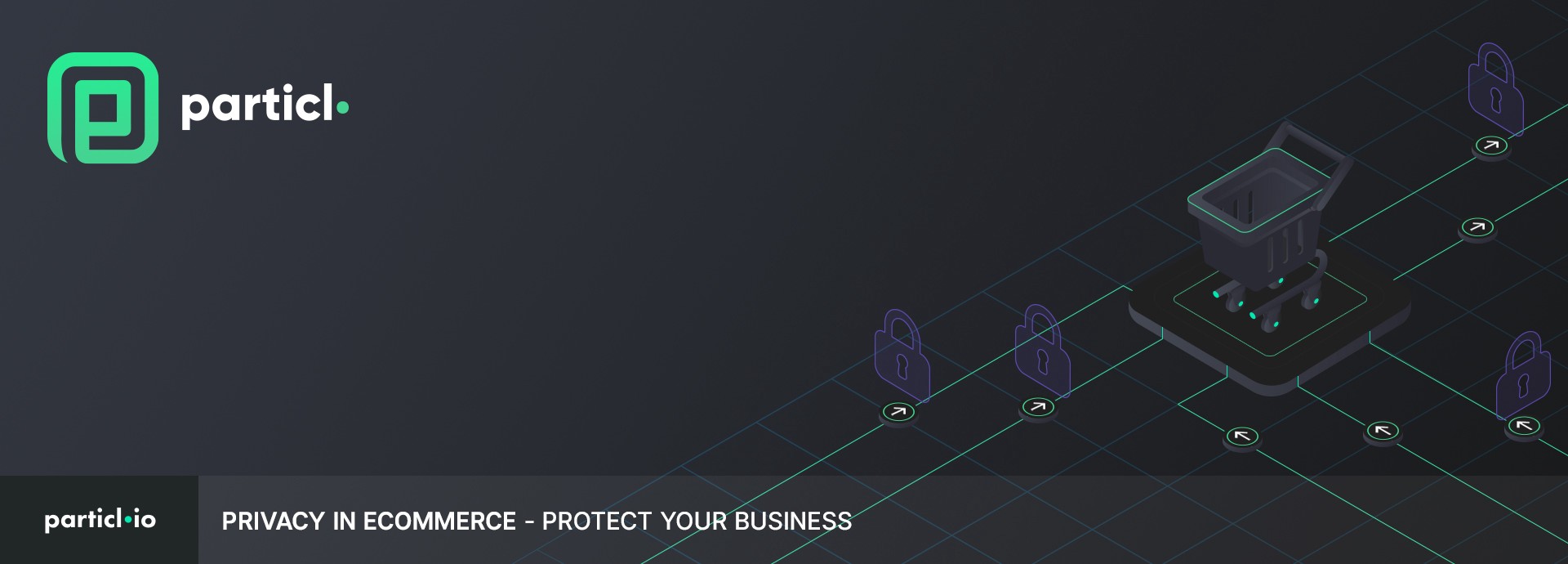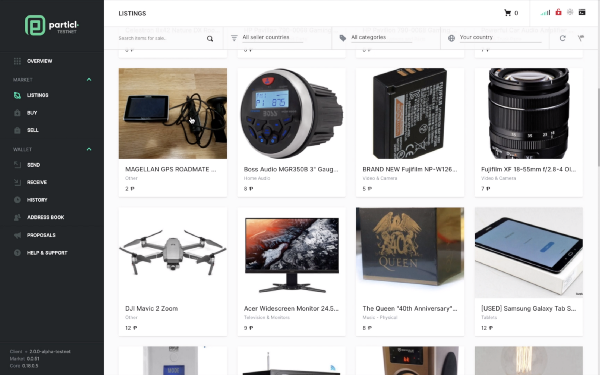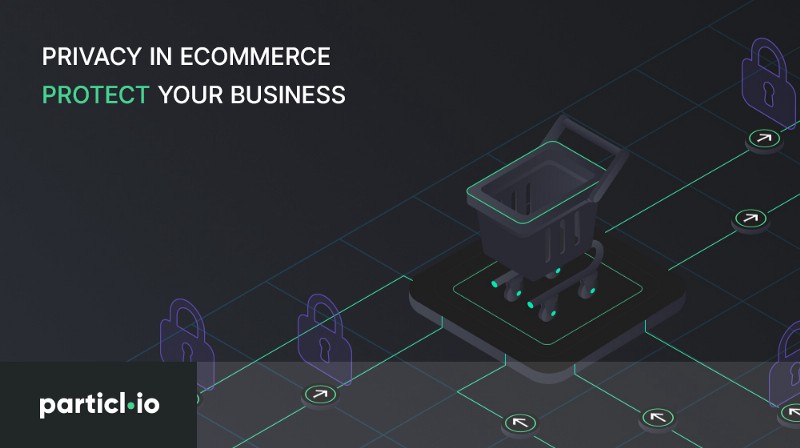
How Privacy Can Help You Keep Your Business Alive
For online vendors, eCommerce has entered an unparalleled golden age. Shoppers are increasingly turning down physical shopping locations like malls and big box stores as they opt to go online instead. Industry analysts expect that, by 2025, online sales will surpass physical points of sale and will leave them in the rearview mirror for good. While online vendors should be rejoicing about such an apparently prosperous state of affairs, many are wringing their hands and wondering about tomorrow.
Online retail is a notoriously competitive industry due to retail titans going toe-to-toe with small vendors. Amazon, eBay, Alibaba, Rakuten, and others harvest sales data before interpreting it with algorithms. This helps them identify the most in-demand products, who is likely to buy them, and what products offer the best return on investments. Once those products are determined, this is where it gets ugly.
Amazon’s Data-Driven Monopoly

Amazon currently hosts upwards of 5 million vendors on their marketplace. You’d think that with numbers like that, they’d be happy to collect a percentage of the roughly $100 billion earned by those sellers in 2018. However, billions in profit year on year and federal tax waivers aren’t enough to satisfy the giant — Amazon wants your fees, your business, and you out of the game.
As a vendor, finding the right niche for your range of products is your bread and butter. All of the legwork it takes to find that niche means countless hours spent doing market research, outreach, and honing your business through trial and error. Amazon, on the other hand, is already three steps ahead of you. Their ultra-fast algorithms perpetually scan billions of datasets floating across the internet to identify trends. Predictive analysis techniques derived from their millions of daily users give them a vast trove of information used to identify emerging trends.
All told, Amazon’s market momentum is built-in — they know what a buyer is going to buy before the buyer does, and the ship keeps sailing right along. Amazon’s compounding centralization of retail power is their bottomless bags of money — they can afford to spare no expense in gathering the brightest minds to build their data analysis and AI tools. The result is a classic vicious cycle, as described by Kai-Fu Lee, an AI specialist:
“The more data you have, the better your product; the better your product, the more data you can collect; the more data you can collect, the more talent you can attract; the more talent you can attract, the better your product.” — Kai-Fu Lee
The Blueprint of How Amazon Destroys Businesses
Amazon, among other marketplaces, possesses all the data it needs to become the most successful online vendor. It uses its sheer power to manufacture copies of the best selling or most profitable items under its brand. It also accurately targets shoppers with ads and product suggestions of the copied product. And, perhaps the most effective and nastiest of practices, it takes the listing of the vendor it copied the product from and puts it way down in the list of results. You were a successful vendor with an item rocking the top section of the first page? Well, no more! Enjoy page 5 or 6. All of these practices ensure Amazon gets the cake and eat it too while severely undercutting the success of its own vendors.
While using giant retail platforms may be convenient, they’re culling your vital business data and using it to compete directly against you — all while you’re paying their high seller fees. Let’s get that clear here, vendors not only get their ideas and inventions stolen from them, they actually pay Amazon to do all the research and market penetration testing for them.
Market efficiency is one thing, but market dictatorship is another. Amazon’s data-driven monopoly is like a black hole at the center of the eCommerce universe — nothing escapes its pull. With no real competition, Amazon is left unrivaled to dictate trends and run circles around your business.
Knocking Independent Retailers Out
Amazon has unlimited access to both vendor and buyer analytics despite making very few mentions of data collection in their terms and conditions. Imagine you had access to an untold wealth of information regarding the exact product you’re putting on the market. With the who, what, when, and where sorted out, you’d be well off. With the additional ability to instantly take the competition out of the game, you’d then be an omniscient retail god — like Amazon.
Every time you make a sale, all of the data associated with it is bundled and parsed for actionable information. Amazon looks at both micro and macro trends such as how products are performing over time and what are their estimated revenue. Remember, all of these calculations are automated by way of algorithms and use relevant, real-time customer spending habits and competitor data. These bits of information paint a picture of your items that lets Amazon know whether or not your particular product is ripe for copying.
The odds of your product being singled out increase the more popular your product is. While that in itself would normally make a retailer jump for joy, it’s become a cause for concern instead. Having a successful product means it’s almost certain that your product will reappear at a lower price under the Amazon Basics brand — a benign-sounding name that belies the bane it’s become to vendors.
Decentralizing the Global Marketplace

The issue mentioned in this article not only speaks about the lack of privacy in traditional eCommerce but also about the problems introduced by omnipotent central authorities.
Blockchain has given the world a new way to exchange value and conduct business without relying on any intermediary at all. It is nothing short of an economic paradigm shift. The significance of this shift has everything to do with empowering you with your original autonomy. In a centralized financial paradigm, you have no choice but to rely on the myriad institutions built to give you one option — use them.
The decentralized paradigm made possible by blockchain is the opposite. You’re the sovereign actor in your own financial universe. The blockchain is a thread connecting you directly to your peers — rendering the middleman useless in the process. Clearly, blockchain is the perfect vehicle for launching a global marketplace that is at once decentralized and entirely trustworthy. Sound a bit too good to be true? Well, that’s because it is.
The problem is also what makes blockchain so great for other applications: it’s a publicly viewable ledger that permanently records all transaction data going through its system. In a public ledger, all of your transactions are on display, as if under the sun on a clear day. A marketplace using a public blockchain would be https://www.technologyreview.com/s/611425/its-time-to-rein-in-the-data-barons/ 2 doing Amazon and other blue-chip retailers a massive favor — they’ll get a sharper view of the retail sector and get even more data.
Moreover, like sharks that smell blood from miles away, data miners have begun allocating resources to the blockchain, forming analysis groups that are raking in big venture capital dollars (along with a few government contracts for good measure). Blockchain analysis groups specialize in matching ledger data to user identities or trends. As compliance regulations surrounding cryptocurrency evolve, blockchain analysis firms will play a key role in harvesting and analyzing your data.
So to very briefly summarize, centralized eCommerce platforms like Amazon and decentralized marketplaces have enough serious issues that, as a vendor, you may be feeling hopeless. However, fret not — there’s a new eCommerce platform that protects your data, your products, and your livelihood.
Particl’s Open Marketplace — Privacy by Default & True Decentralization

To put an end to the misuse of data once and for all, the Particl team banded together to build a fully decentralized and private marketplace. Decentralization is the way to go, but it needs a key ingredient to really thrive for eCommerce applications — privacy.
Particl boasts the many benefits associated with blockchain but adds something that no other marketplace can claim: private-by-default transactions and zero data trail. Private-by-default transactions mean that only you know what you sell. No longer will your precious data be harvested and used to undercut you further down the road. No longer do you have to worry that an all-seeing AI is monitoring your account and waiting for you to do market research.
Particl gives you the leverage and the freedom necessary to finally be the vendor you set out to be. Selling products online on Particl’s Open Marketplace is just like making in-person sales paid for with cash. You’re free to connect with a community on a peer-to-peer basis and you’re free to do it in full confidentiality. This is what marketplaces used to be and should revert back to — a common place where people come together and exchange to the benefit of all.
We didn’t set out to create the next monopoly — we set out to render the current ones obsolete.
